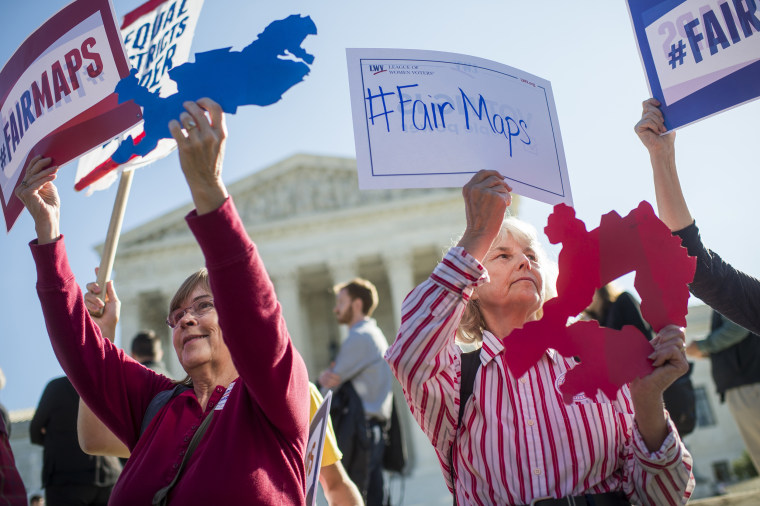WASHINGTON — The U.S. Supreme Court on Monday declined to stop Pennsylvania from having to draw new maps for its congressional elections, turning down an appeal from Republicans who said there wasn't time to do it ahead of this year's primary.
The state Supreme Court ruled on Jan. 22 that the current map is excessively partisan, amounting to a gerrymander intended to permanently disfavor Democrats. As drawn, the state's congressional district boundaries "clearly, plainly and palpably" violate the Pennsylvania Constitution, the state court held.
The ruling gave the legislature three weeks to come up with a new plan for the state's 18 congressional districts. If the state is unable to meet that deadline, the court said it would draft its own map.
State Republican officials asked Justice Samuel Alito, who handles emergency appeals from Pennsylvania, to put the order on hold. They argued that with the primary election scheduled for May 15, the ruling "cast Pennsylvania's congressional elections into chaos."
But without comment, Alito denied the appeal. Republican officials could try again with another Supreme Court justice, but such an effort would have virtually no chance of success.
The League of Women Voters and a group of state residents are behind the challenge to the current congressional map. Lower courts found that it packed Democratic voters into five districts where they already had solid majorities and spread other Democratic voters around the remaining districts where they couldn't form a majority.
The state's 7th District, nicknamed "Goofy Kicking Donald Duck," split five counties and 26 cities and towns.
Rick Hasen, an election law expert and professor at the University of California, Irvine, said Monday's refusal to take the case is a sign that "all is not partisan politics" at the Supreme Court.
"If it were, surely Justice Alito would have ruled to help Republicans in their Pennsylvania House races in 2018," he said.
But given that the state ruling was based on Pennsylvania's constitution, not the federal one, it was unlikely the U.S. Supreme Court would take the case.
Pennsylvania Gov. Tom Wolf, a Democrat, commended the Supreme Court's denial of the Republican appeal.
"My team is ready, willing and able to work with the General Assembly to ensure a new map is fair and within the clear orders given by the Pennsylvania Supreme Court," Wolf said Monday.
State and federal courts have for decades tossed out redistricting plans based on claims of racial gerrymandering, but partisan gerrymandering challenges have generally gone nowhere — until very recently.
Federal courts in Texas, North Carolina and Wisconsin have found merit in the claims of excessive partisanship and ordered new maps drawn. The Supreme Court has put the effect of those rulings on hold while it considers how to tell when gerrymandering becomes so partisan that it violates constitutional bans on discrimination.
